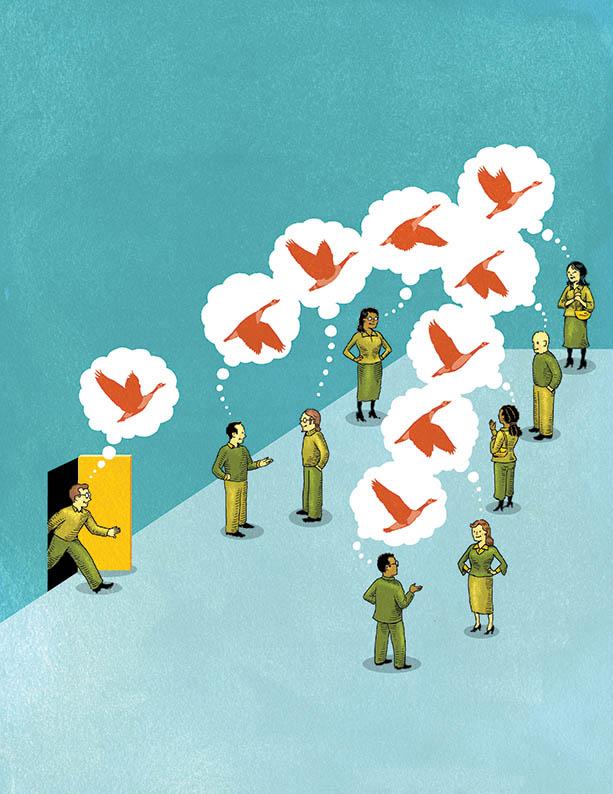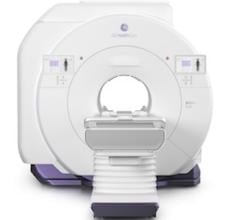
In a study using functional magnetic resonance imaging, Virginia Tech Carilion Research Institute scientists found that our inherent risk-taking preferences affect how we view and act on information from other people. Birds of a feather do flock together. Illustration by Wesley Bedrosian
In the world of imaging, we typically look at medical imaging equipment as being a valuable tool for identifying and rooting out disease. However, it also has many other scientific uses that often seem a little off the beaten path.
In a newly released study using functional magnetic resonance imaging (fMRI), Virginia Tech Carilion Research Institute scientists found that neural social signals align in terms of safety and risk. The study found that our inherent risk-taking preferences affect how we view and act on information from other people, and the brain scans showed that study participants increased their perceived value of a gamble after seeing other people take that gamble. The neural signals also predicted the likelihood that participants would conform to others' choices.
So, birds of a feather really do flock together ... or at least influence each other. The researchers published their findings May 18 in the multidisciplinary journal Nature Neuroscience. "You're more likely to follow the risky decisions of other people if you like to take risks, and you're more likely to follow the cautious decisions of other people if you tend to be cautious," said Pearl Chiu, senior author on the paper and an assistant professor at the Virginia Tech Carilion Research Institute. "Our data explain why this happens. The choices that others make become more valuable than they would be otherwise, and our brains are wired to choose things that are more valuable."
For the study, scientists scanned participants' brains as they made gambling choices alone and also after seeing other players' choices. Chiu and her team observed that both safe and risky choices of other people influenced participants' choices to be safer or riskier than the choices they made alone. The study also stressed that not all risks are bad - many are healthy, such as trying out for a sports team. The influence of others really can make a difference, and how strong social support systems can encourage positive choices.
George Christopoulos, an author on the paper and an assistant professor at Nanyang Business School in Singapore, explained further. "We've known for a long time that people are influenced by others," he said. "This study offers a systematic experiment as well as a computational model to explain social decision-making."
The science behind choice becomes more complex depending on how much weight someone gives to the decisions of other people. The technology is there to help us better understand how to use it.


 February 20, 2026
February 20, 2026 









